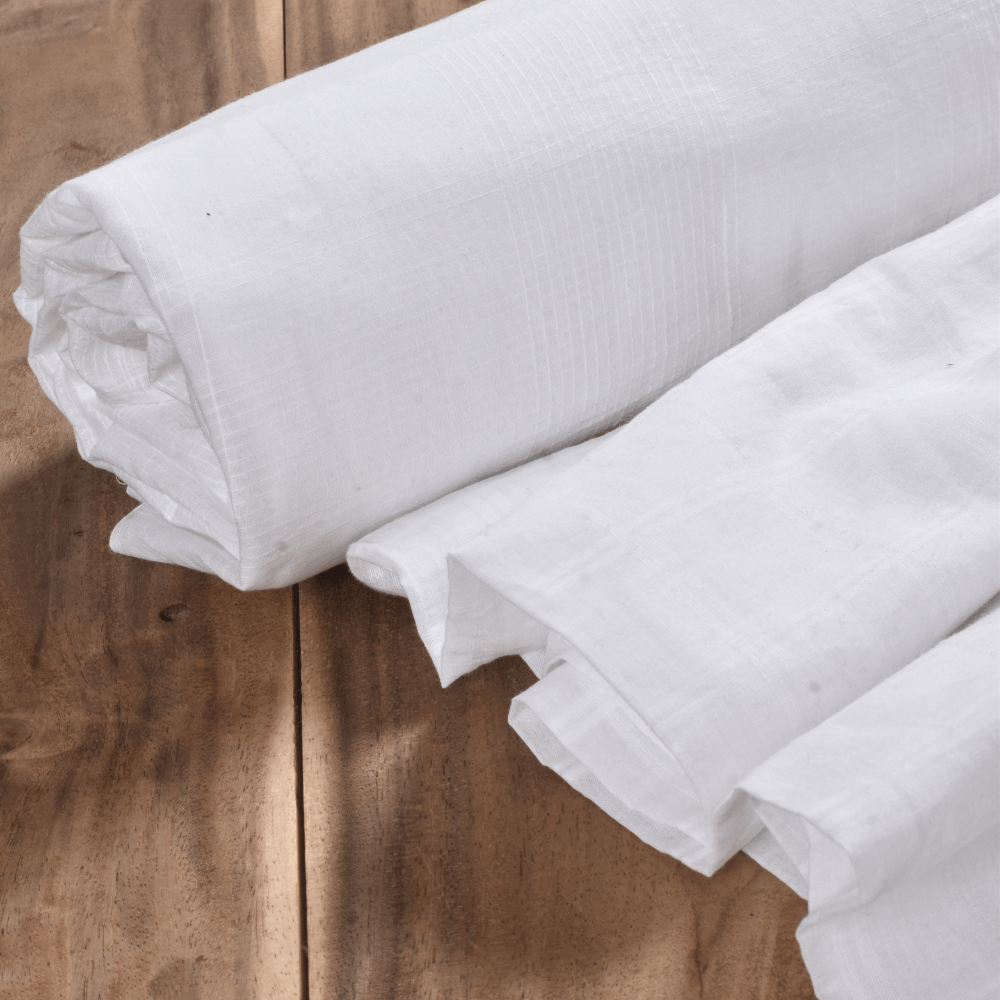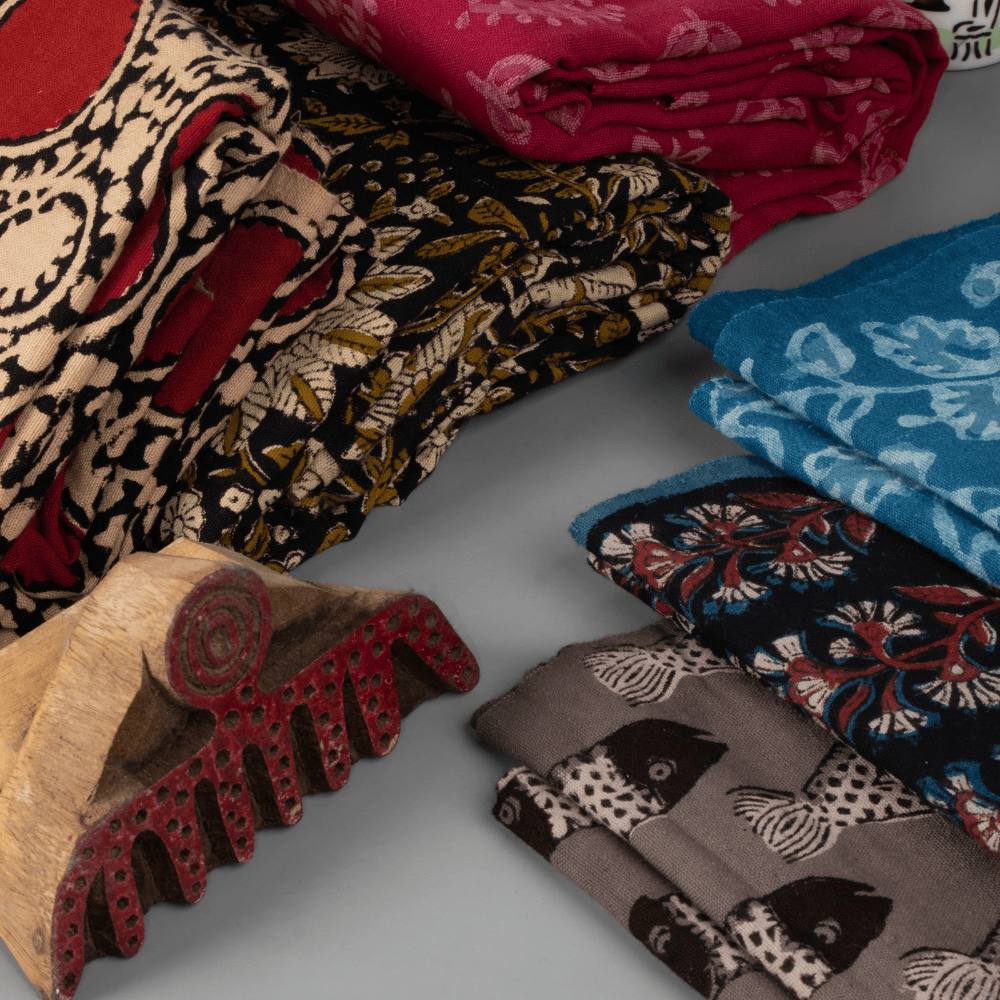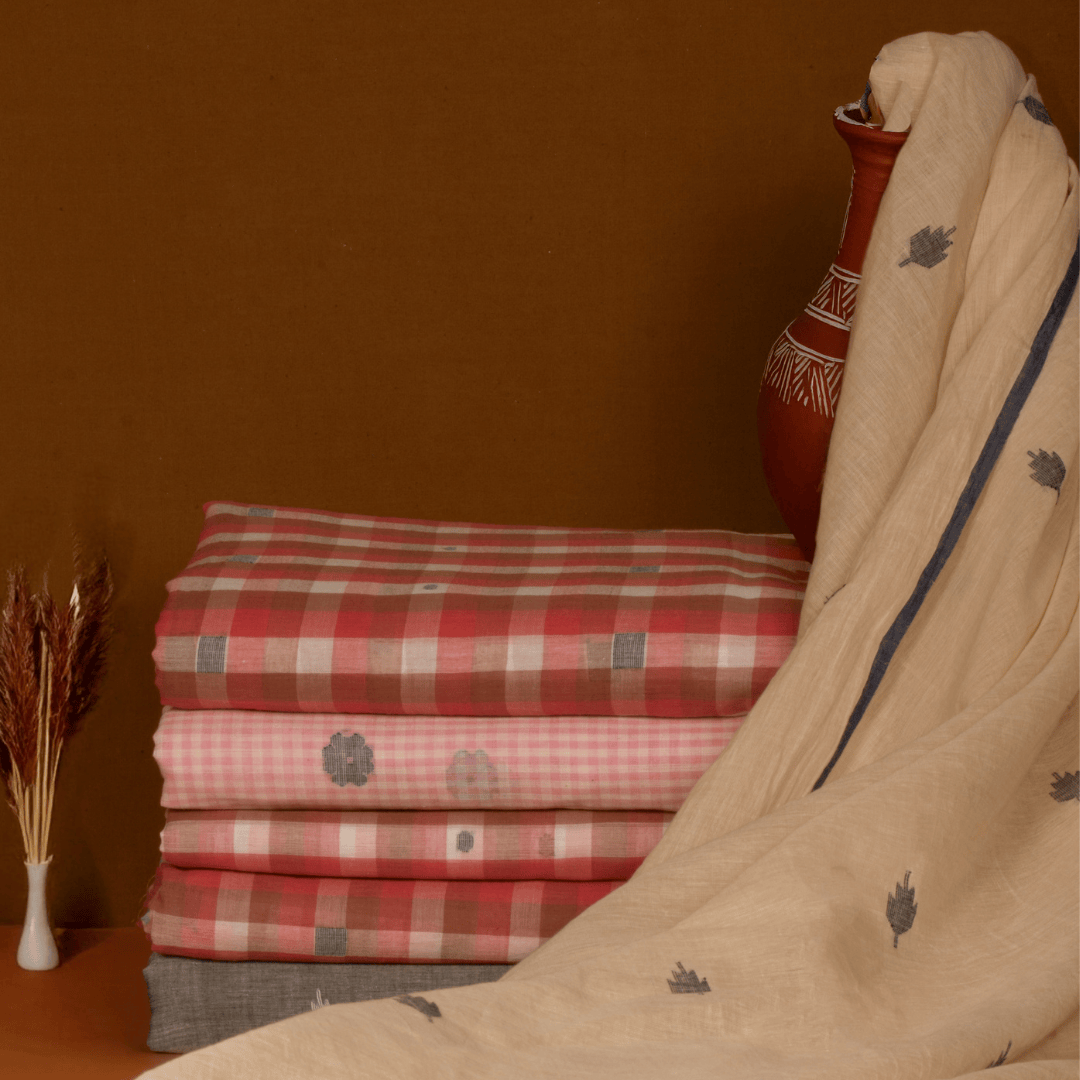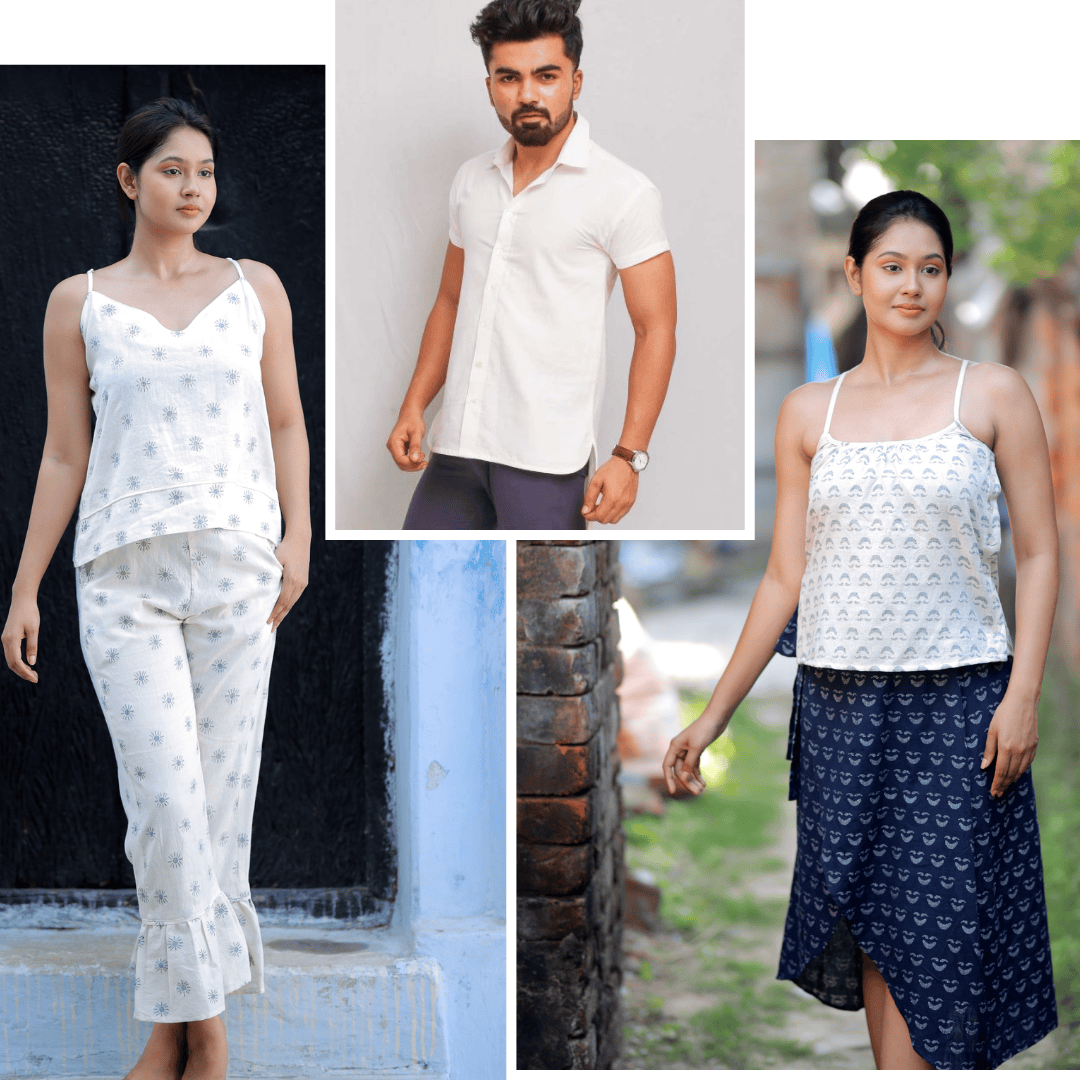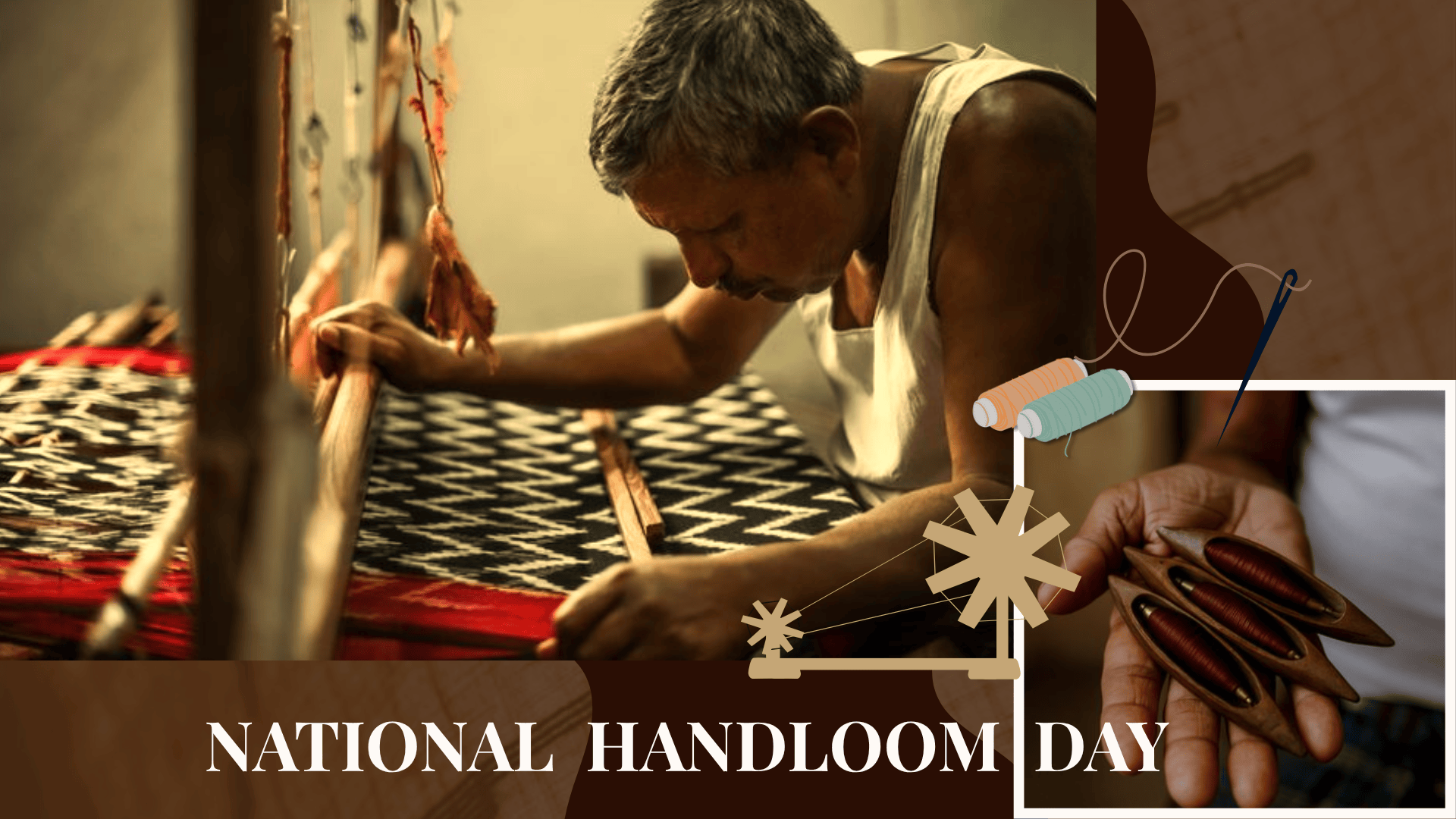
National Handloom Day 2025: 10 Must-Have Handloom Textiles from Across West Bengal and India

Every year on August 7, National Handloom Day celebrates the artistry, resilience, and cultural heritage of India’s weaving communities. It’s a day to honor the centuries-old traditions that continue to thrive in workshops, villages, and artisan homes—many of them now contributing to sustainable fashion and ethical luxury markets worldwide.
India’s handloom heritage is as diverse as its regions, and in 2025, this legacy feels more relevant than ever. Consumers are seeking textiles that combine authenticity, craftsmanship, and low-carbon footprints—qualities intrinsic to handloom fabrics.
Here’s our curated list of 10 must-have handloom textiles from West Bengal and across India that deserve a place in every designer’s swatchbook and every conscious wardrobe.
The Story Behind National Handloom Day: Why August 7th Matters
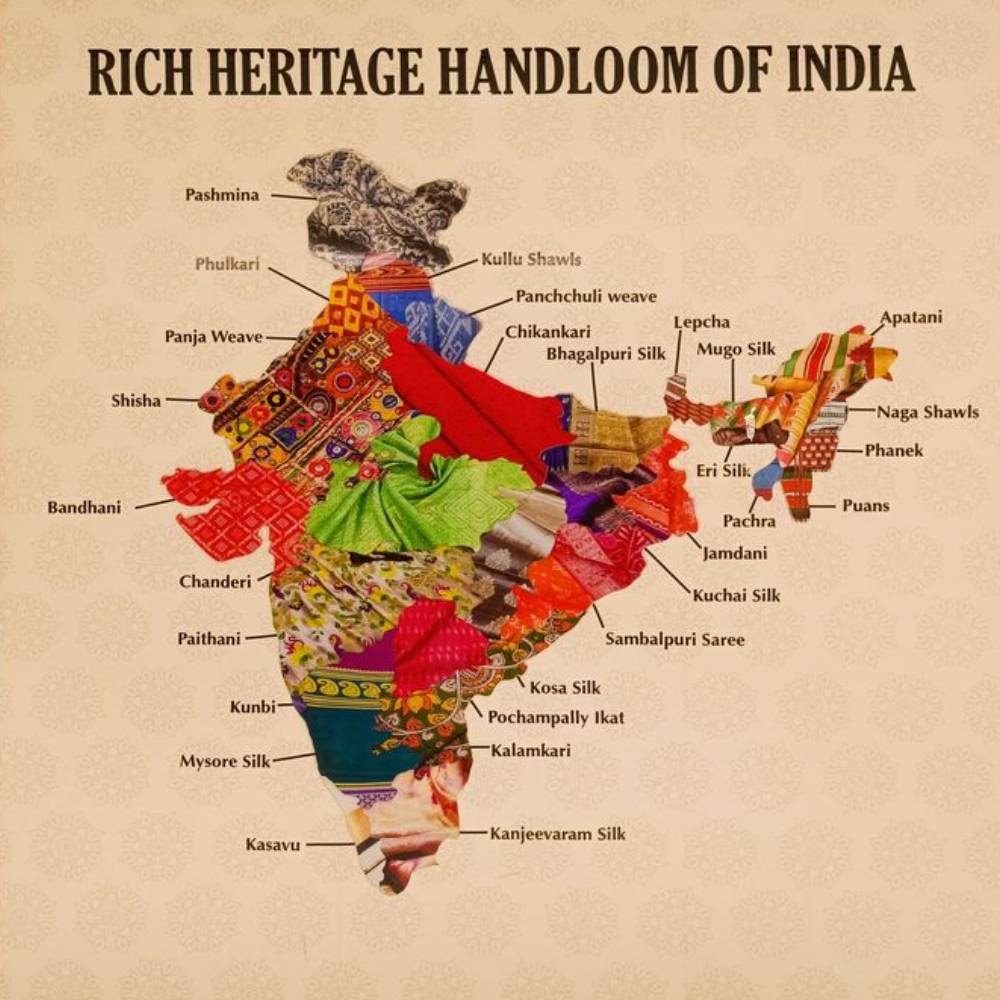
The date of National Handloom Day commemorates a pivotal moment in India's history: the launch of the Swadeshi Movement on August 7, 1905.
This movement began as a peaceful protest against the British government's decision to partition Bengal.
It was a powerful act of economic resistance, urging Indians to reject foreign goods and embrace locally made products, with handwoven fabrics becoming a powerful symbol of national pride.
Over a century later, on August 7, 2015, the significance of this date was formally recognized.
Prime Minister Narendra Modi officially launched National Handloom Day to reaffirm India's commitment to its artisan communities and to celebrate the rich, enduring legacy of its handwoven textiles.
Handloom Fabric From Across India
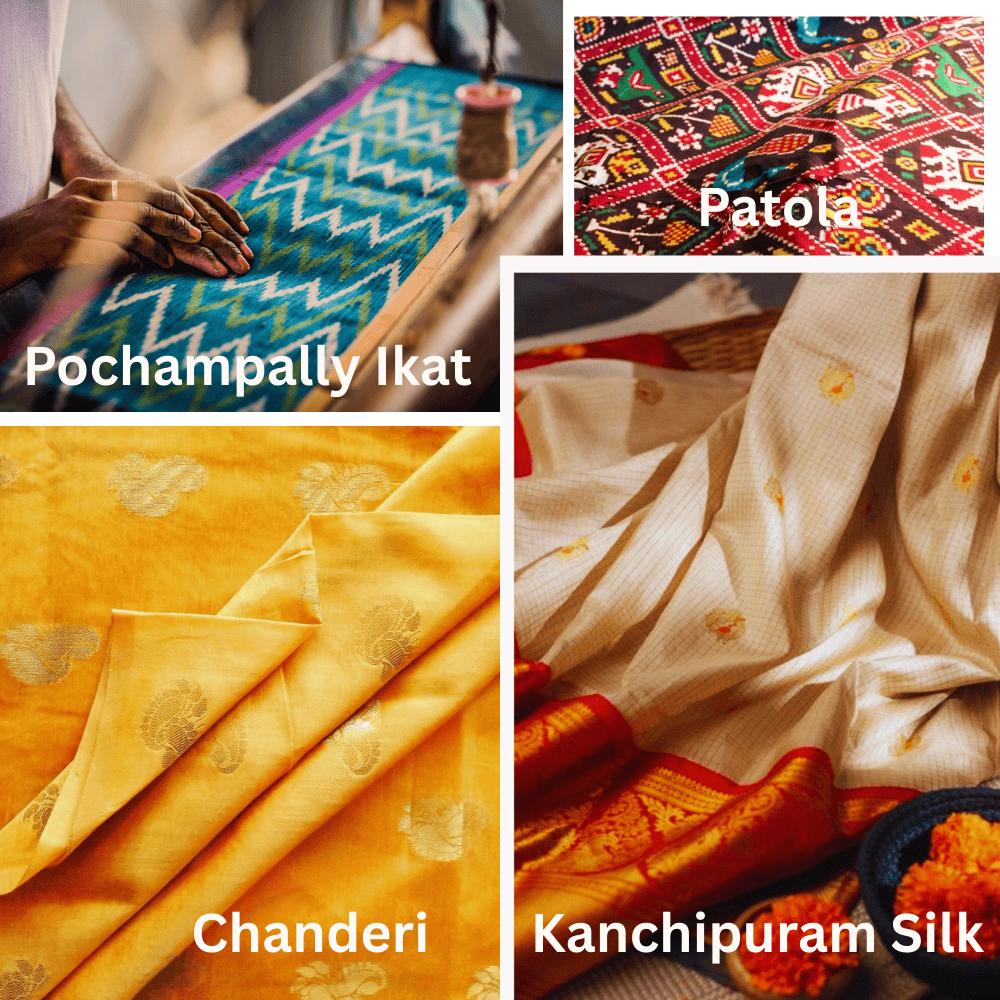
Pochampally Ikat: Originated in Telangana, Resist-dyeing of warp and weft before weaving, creating signature blurred patterns. Bold pattern play for unisex fashion and global streetwear.
Kanchipuram Silk: Originated in Tamil Nadu, Heavy mulberry silk with contrasting borders and temple-inspired motifs. Bridal couture and luxury capsule collections.
Chanderi Silk: Originated in Madhya Pradesh, Sheer texture with silk-cotton blends and gold zari. Layering pieces, occasion jackets, and lightweight festive wear.
Patola: Originated in Gujarat, Double ikat silk with identical patterns on both sides, painstakingly woven by master craftsmen. Statement heirloom pieces, artisanal luxury scarves, and collectible fashion art.
Iconic Handloom Fabrics of West Bengal
Dhakai Jamdani:
Originating from the Dhaka region (now in Bangladesh) but deeply rooted in West Bengal's weaving history, Jamdani is a UNESCO Intangible Cultural Heritage.
This fine muslin fabric is characterized by its intricate, almost weightless, motifs woven directly into the loom using supplementary weft threads.
The floral and geometric patterns seem to float on the sheer surface, a testament to the weaver's exceptional skill.
Owning a Jamdani saree, garments or luxe scarves, and sheer layering in modern silhouette is owning a piece of Bengal's handloom fabric or piece.
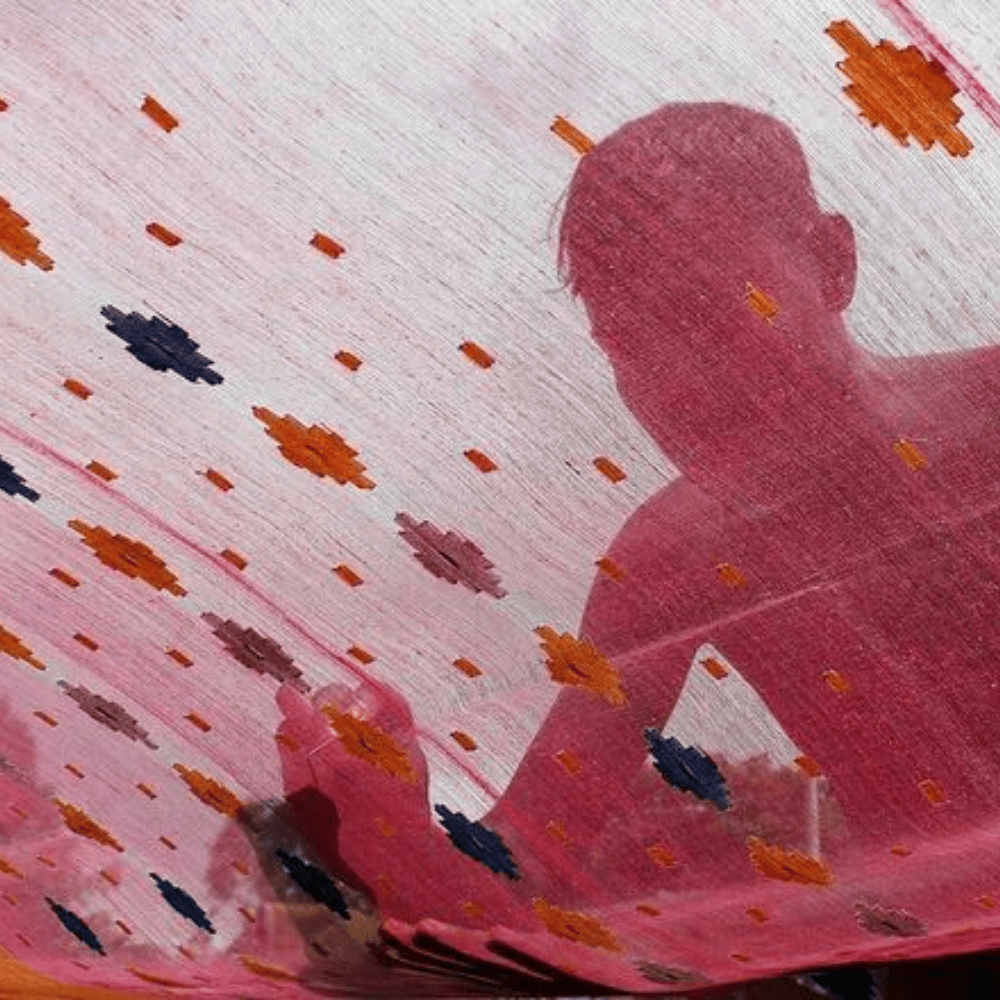
Matka Silk: The Textured Elegance
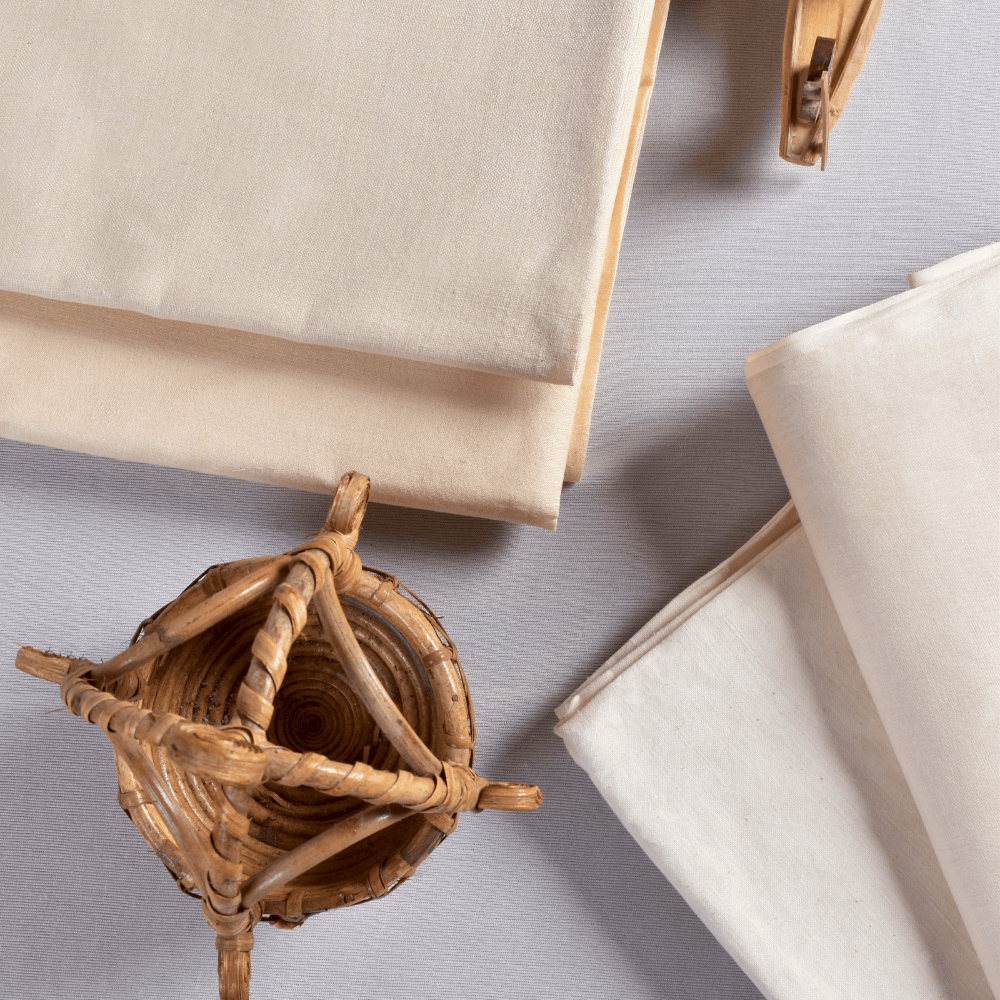
Matka silk, produced in West Bengal, is a handloom silk yarn spun from the waste silk cocoons without removing the gum.
The production of matka silk is largely centered in West Bengal, particularly in the Malda and Murshidabad districts. Artisans, often women, manually spin the short, thick fibers, which still contain their natural gum (sericin).
This hand-spinning process is what gives the yarn its characteristic irregularities and uneven texture, which in turn gives the final fabric its unique, raw charm. This results in a slightly coarse, textured fabric with a unique, rustic appeal.
Matka silk sarees and stoles offer a beautiful drape and a sophisticated, earthy aesthetic, perfect for those who appreciate the natural character of handspun textiles.
At Anuprerna, we actively work with Bengal’s silk clusters
We source Matka yarn directly from rural silk-spinning communities, ensuring fair prices and consistent orders. Beyond saris, we develop Matka for apparel fabrics, accessories, and home textiles, making it relevant to both Indian and global markets.
Muslin and Khadi: The Lost and Found Treasure
While the original fine muslin that once captivated the world is largely lost, contemporary weavers in West Bengal are striving to revive this delicate art form.
Khadi is Handspun and handwoven cotton with unmatched breathability and texture
Characterized by its sheer, almost translucent quality and incredibly fine weave, modern muslin products like sarees, dupattas, and stoles offer a glimpse into Bengal's legendary textile past. Owning a piece of authentically woven muslin or khadi is a nod to a rich and intricate heritage.
Bishnupuri Silk: The Soft Sheen of Heritage
Also from Bishnupur, Bishnupuri silk sarees are celebrated for their smooth texture, subtle sheen, and vibrant colors.
Often less elaborately patterned than Balucharis, Bishnupuri silks focus on elegant borders, simple motifs, and the luxurious feel of pure silk. They are a versatile choice for various occasions, embodying understated sophistication.
Baluchari Saree: Woven Epics
Hailing from the Bishnupur region, the Baluchari saree is a masterpiece of storytelling woven in silk. These sarees are distinguished by their elaborate pallus depicting scenes from epics like the Mahabharata and Ramayana, as well as historical and social narratives.
The intricate figures and detailed borders are a testament to the weaver's artistry and patience. Owning a Baluchari is like owning a wearable piece of Bengali folklore and history.
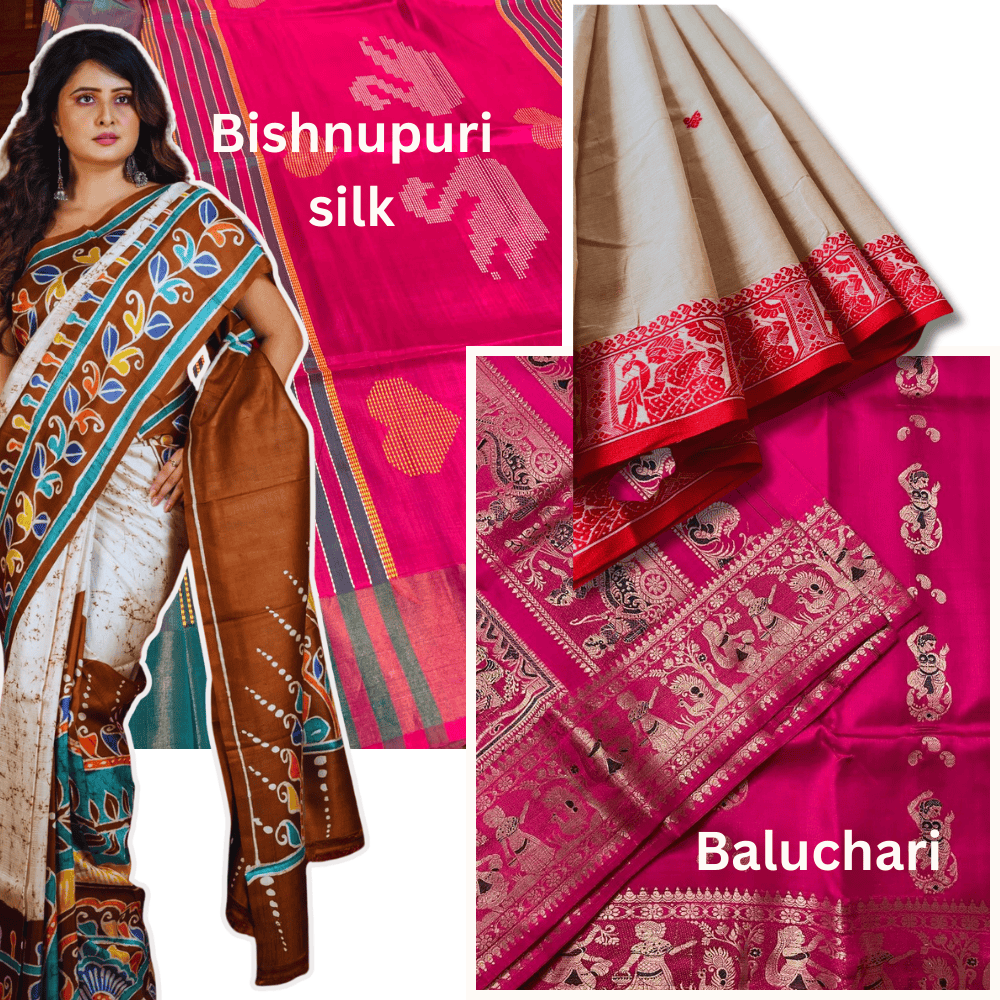
Block Printed Textiles:
Across West Bengal, artisans engage in the traditional art of hand block printing. Using intricately carved wooden blocks, they imprint vibrant designs onto cotton and silk fabrics.
From bold geometric patterns to delicate floral motifs, these hand-printed textiles showcase the skill and creativity of the craftspeople. Owning a block-printed saree, kurta, or home furnishing brings a touch of artisanal charm to your life.
Celebrate National Handloom Day with Anuprerna
At Anuprerna, we collaborate with over 500 artisans—many from West Bengal—to create heritage textiles for global designers, sustainable brands, and conscious consumers.
We focus mostly textiles of Bengal from jamdani, Matka silks, Hand block prints to khadi and muslins , our collections combine traditional craftsmanship with contemporary relevance.
These fabrics are versatile. They can be used for:
- Saris for traditional occasions
- Dresses, jackets, and tops in modern fashion
- Home décor such as cushions, curtains, and table linens
related questions
What are the famous handloom fabrics of West Bengal?
arrow_drop_downWest Bengal is home to a rich variety of handloom fabrics, including Jamdani, Baluchari, Tangail, Shantipur Fine Cotton, Bengal Khadi, and Matka Silk. Each has a distinct weaving technique, motif tradition, and cultural significance.
How can I style West Bengal’s handloom fabrics?
arrow_drop_downThese fabrics are versatile. They can be used for: Saris for traditional occasions Dresses, jackets, and tops in modern fashion Home décor such as cushions, curtains, and table linens
Where can I buy authentic handloom fabrics from West Bengal?
arrow_drop_downYou can buy directly from artisan cooperatives, certified handloom exhibitions, or ethical brands like Anuprerna, which works directly with weaving clusters to ensure authenticity, fair wages, and sustainable production.
More Blogs
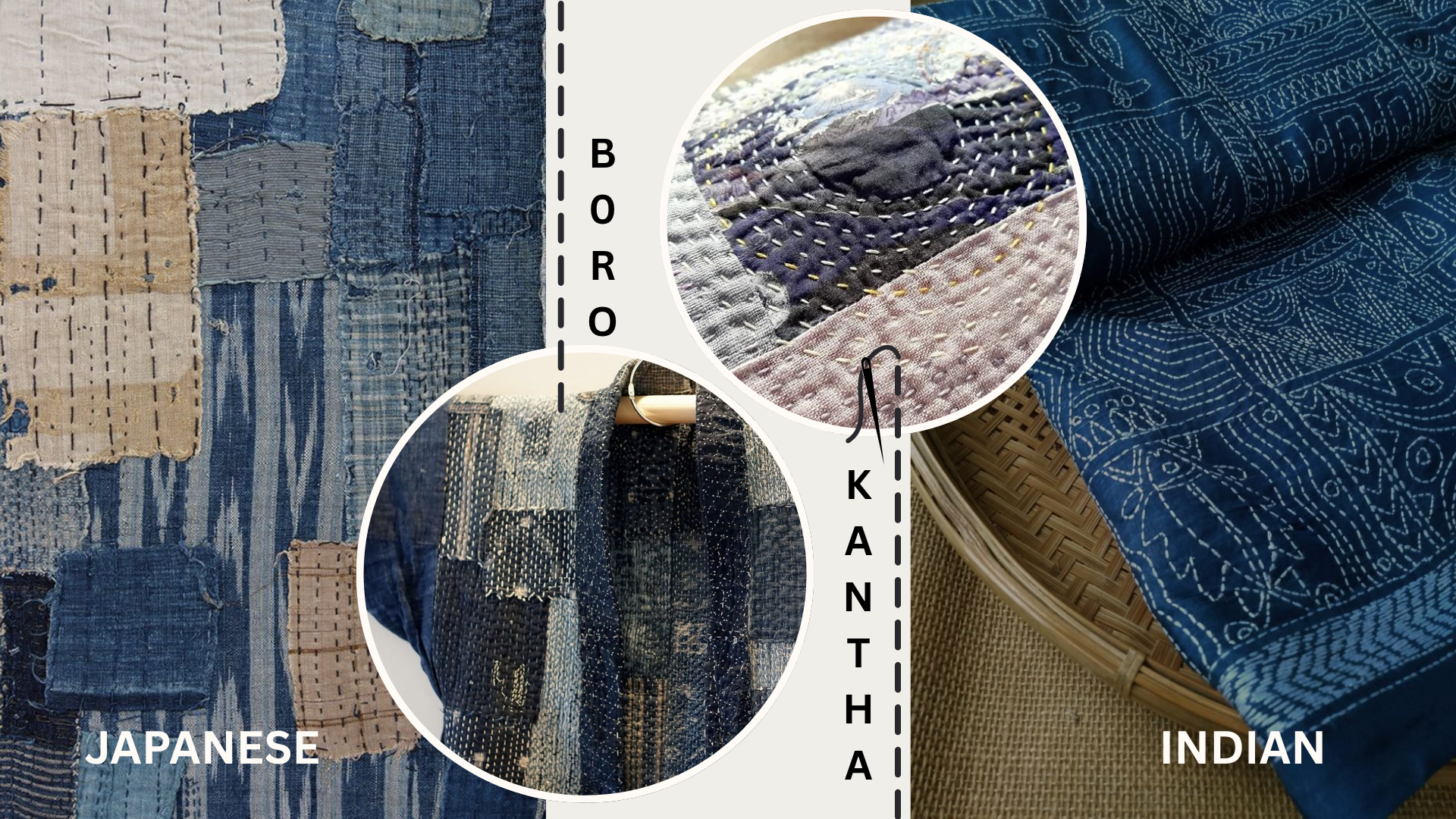
what japanese boro and indian kantha can teach us about repair culture
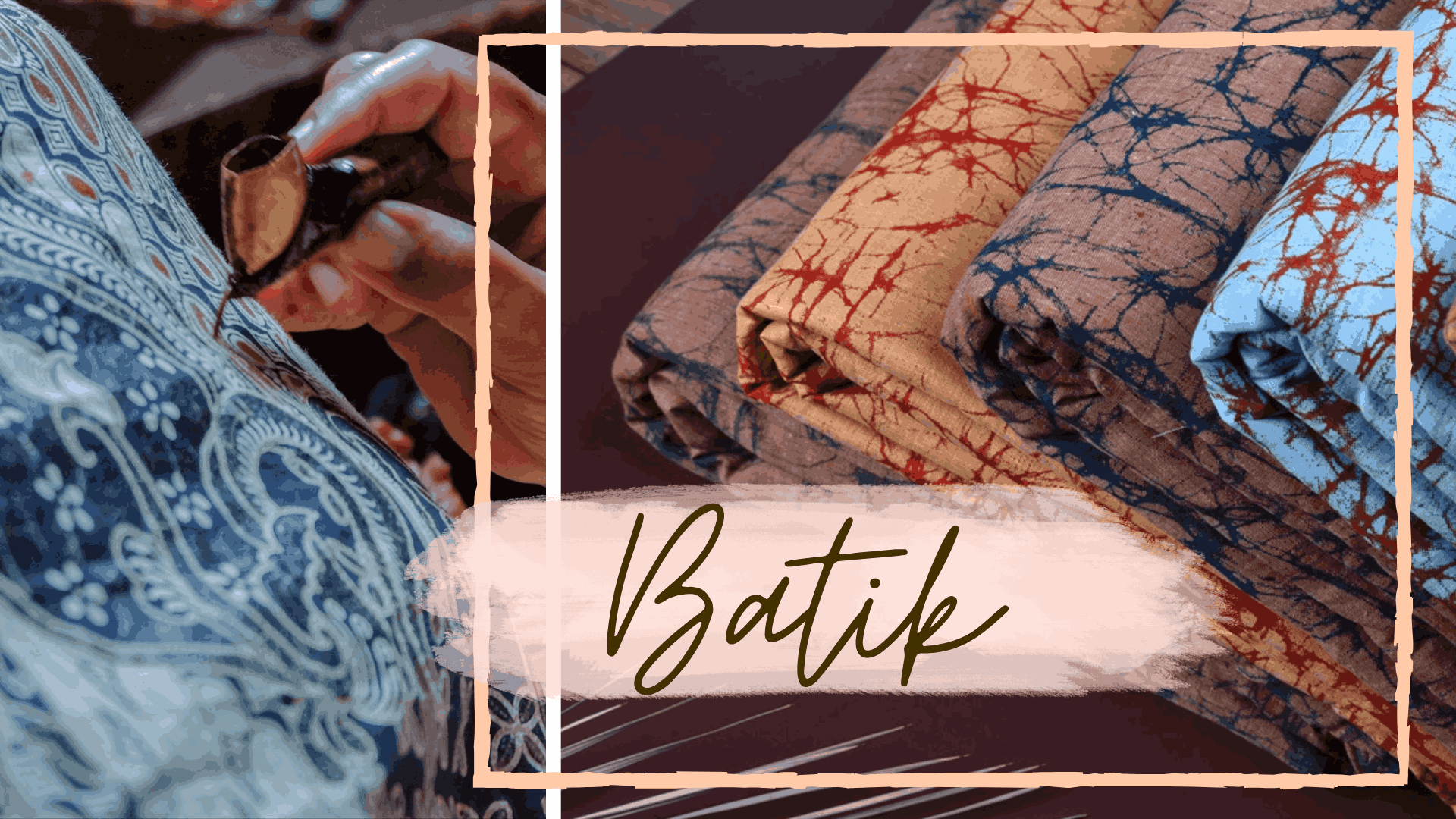
the living art of batik fabrics: sustainable traditions

ethical supply chains: the sustainability impact of khaadi online shopping

handspun khadi vs. mill-made cotton: why khadi online shopping offers more value
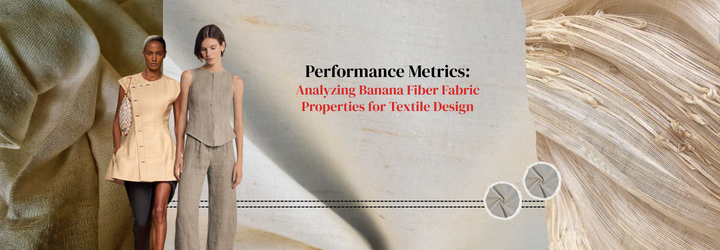
performance metrics: analyzing banana fiber fabric properties for textile design
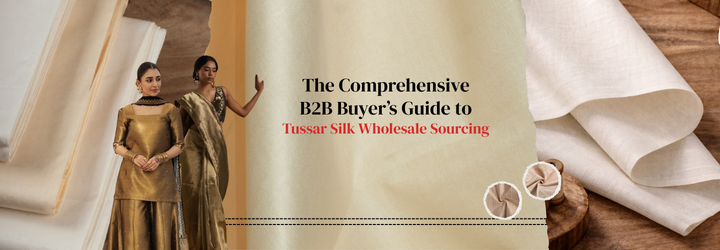
the comprehensive b2b buyer’s guide to tussar silk wholesale sourcing
